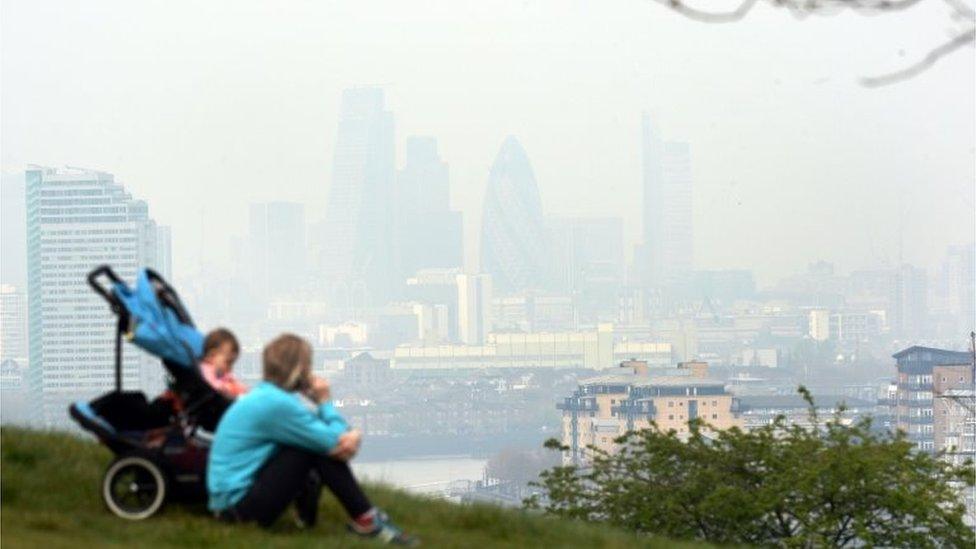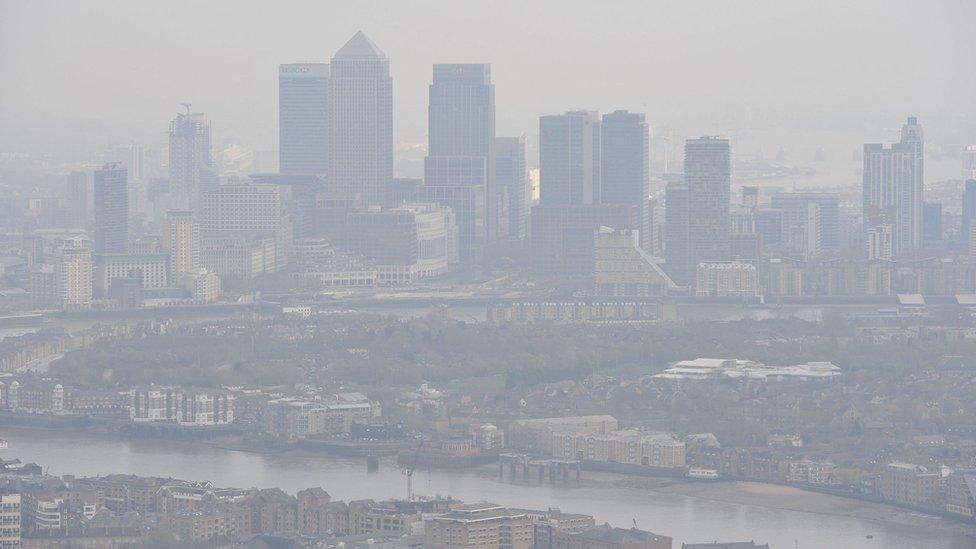Air pollution linked to dementia, London study suggests
- Published

Annual legal air pollution limits were reached in London within the first month of the year
Air pollution may be linked to an increased risk of developing dementia, research in London has suggested.
A study shows a link between the condition and exposure to nitrogen dioxide (NO2) and toxic air particles.
Patients living within the M25 in areas with the highest NO2 levels were 40% more likely to develop dementia than those in areas with lowest levels, researchers said.
Alzheimer's Research UK said the results should be treated with caution.
The study, published in journal BMJ Open, external, used anonymous patient health records from the Clinical Practice Research Datalink to collect data from 75 general practices within the M25.
The researchers, from the University of London, Imperial College and King's College London, said further work was "urgently" needed to confirm its findings.
Their work focused on 131,000 patients, aged between 50 and 79 in 2004, who had not been diagnosed with dementia.
The health of each patient was tracked for an average of seven years until they were diagnosed, died or left their GP practice.

Data from more than 130,000 patients at London GP practices was used in the study
Between 2005 and 2013, about 2,200 of these patients were diagnosed with dementia.
These diagnoses were found to be linked to ambient levels of NO2 and the toxic particles PM2.5, based on estimates taken near the homes of patients in 2004.
Those living in areas with the top fifth of nitrogen dioxide levels had a 40% increased risk of being diagnosed with dementia compared with those living in areas with the lowest fifth.
A similar rise was seen in areas where the air had higher levels of the toxic air particles PM2.5, the study added.
"Our results suggest both regional and urban background pollutants may be as important as near-traffic pollutants," the researchers said.
"The cause of these neurodegenerative diseases is still largely unknown... while toxicants from air pollution have several plausible pathways to reach the brain, how and when they may influence neurodegeneration remains speculative."
Alzheimer's Research UK has supported the idea of further research.
Dr David Reynolds, the charity's chief scientific officer, said: "While the researchers tried to account for factors like wealth, heart disease and other potential explanations for differences in dementia rates across the capital, it is difficult to rule out other explanations for the findings.
"The diseases that cause dementia can begin in the brain up to 20 years before symptoms start to show.
"We don't know where people in this study lived in the two decades before their dementia diagnosis, so we have to be cautious about how we interpret these results."
Annual legal air pollution limits were reached in London within the first month of this year.
A recent NO2 study found Marylebone Road and Hyde Park Corner were the most polluted postcodes in Britain.
- Published25 July 2018

- Published10 January 2018
